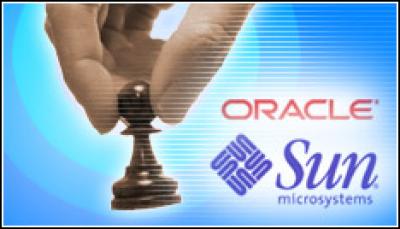

New Google CEO Larry Page will have many issues to address, but mounting evidence that Google’s Android operating system infringes Oracle’s patents should be a high priority.
Oracle sued Google in August, claiming Android includes both patents and copyright material relating to Java, a technology Oracle acquired when it bought Sun Microsystems at the start of 2010. Google has contested the suit, but has so far not made the customary response – countersuing Oracle for infringing Google patents.
On copyrights, Mueller has posted detailed comparisons of the source code of Android and Sun’s original Java code, which include many files with a “pattern of direct copying,” and files which were marked “PROPRIETARY/CONFIDENTIAL” by Sun, along with a copyright notice file that says: “DO NOT DISTRIBUTE!”
“It seems to me that Oracle has not even presented the tip of the iceberg in its amended complaint,” said Mueller. “The discovery process could be very fruitful for Oracle, and may become dreadful for Google.”
Oracle’s suit against Google has been criticised because the company changed its stance on whether Java should be open source, when it purchased Sun Microsystems. The industry had relied on Sun’s good-natured approach to Java, but Oracle lawyers immediately saw it as an asset to exploit, according to Java’s creator James Gosling.
The Android operating system now outsells Apple’s iPhone in the US smartphone market, and a successful suit against it could be profitable for Oracle. Some commentators argue that the suit was a significant factor in Oracle’s purchase of Sun.
Android is implicated in around a dozen disputes which started in 2010, including one between Apple and HTC, however Google’s response has been limited by its own weak patent portfolio, according to Mueller.
Google does not figure on the list of 2010’s top patent winners and only holds 576 patents in total, which makes it weak in the cross-licensing discussions which normally settle patent disputes, said Mueller. Cross licensing is expected to be the end-game of the long running Apple-Nokia dispute, for instance.
Android’s increasing share of the mobile phone market makes it a potentially profitable target for patent law suits – a “suit magnet” in the words of commentator Maureen O’Gara.
However, Google’s tardy response to the Oracle suit does not mean it will not counter-sue. Google refused to comment on the case, at all and a patent lawyer commented to eWEEK Europe that any assumption that Google will not countersue is “pure speculation”.
OpenAI chief operating officer Brad Lightcap to oversee international expansion as company consolidates lead in…
Chinese researchers publish details on device that could wreak havoc on undersea communications cables in…
Former Intel chief Gelsinger expands role at Gloo, becoming executive chairman and head of technology…
MEPs add to Commission pressure for second EU Chips Act amidst industry calls for renewed…
Smartphone maker Xiaomi reportedly raises about $5.5bn in Hong Kong share sale as it invests…
BYD's Qin L EV sedan starts at about half the price of Tesla's Model 3,…
View Comments
I have a hard time seriously considering the opinion of anyone who quotes Maureen O'Gara as if she were an unbiased source.
Florian Mueller is on the payroll of Microsoft to bash Microsoft's competitors, especially Google and IBM.
Florian is only moving his butt where there is money.
"direct copying" - not!
FM's blog talks about direct copying.
What he glosses over, is that the copying is precisely this:
copying decompiled code into Android. And nothing else.
He compares decompiled code (which he decompiled himself) to the Android code. They're a nearly perfect match, including variable names.
If you look at his earlier analysis of the Exhibit J vs Android code, they are somewhat similar. However, the variable names are different, comments differ, and only the essential elements for compatibility are the same (i.e. external references to Java class names/routines, logical structure, and strings of text). Changing any of the essential elements would break compatibility.
Reverse engineering for compatibility is permitted (under the "fair use" doctrine) in the USA. Copyright violation analysis requires a process of abstraction, filtration, comparison, the best example of which (failing, that is) can be seen in the SCO debacle, the full history of which can be found on groklaw.org.
And clearly, reverse engineered code *can* be licensed by the "author", i.e. the reverse engineer, however he/she/they wish. This is how compatible code can be licensed under Apache License 2.0, as is the case for Android.
The overall area of EULA vs copyright vs reverse engineering is a contentious area of law, and not necessarily decided. The Supreme Court has not yet stepped into this mess.
So, FM claiming this is a slam dunk is rather typical of FM, i.e. overstated, obfuscated bunk.
I expect this lawsuit to eventually be resolved in Google's favor.
Name Withheld By Request
Read more: http://www.theinquirer.net/inquirer/news/1938858/comments-android-code-hurt-googles-battle-oracle#ixzz1BhRF1uSX
The Inquirer - Computer hardware news and downloads. Visit the download store today.
Meuller and O'Gara, oh my. If you're going to go full troll with the article and complete the trifecta you need a quote from Rob Enderle also. 8/10
"Some commentators argue that the suit was a significant factor in Oracle’s purchase of Sun."
Of course it was! Does anyone seriously think that oracle bought Sun, and only *then* realised that they might be able to sue Google? Come on!
I don't now what the licensing arrangements were before the Oracle buyout, but imho they are what should apply, and not anything Oracle subsequently decided was appropriate (and best for Oracle).